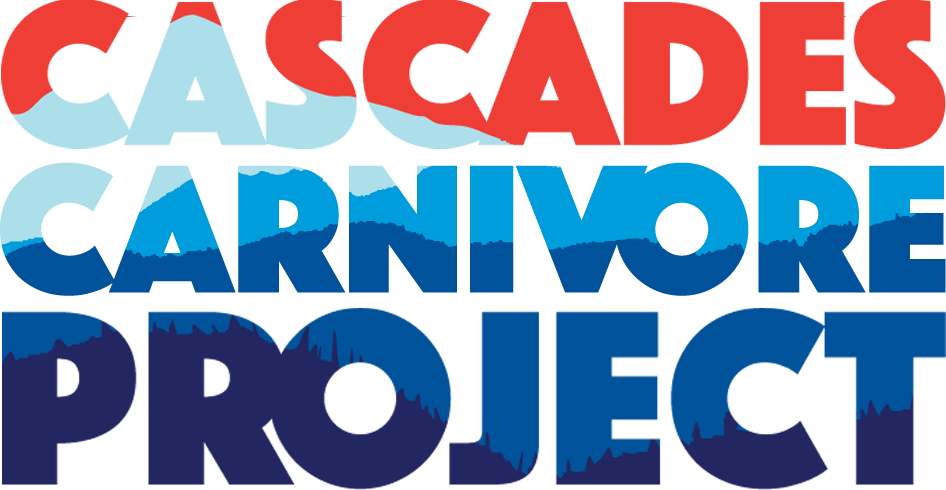Heather Rolph grew up exploring the woods behind her home in Anacortes, Washington, where she collected frogs and snails and imagined her life as a marine biologist. Now 23, she holds a Bachelor’s of Art degree in organismal biology and ecology from Colorado College and spends her days exploring a much more expansive landscape – the subalpine meadows and forests of Mount Rainier National Park and the North Cascades Ecosystem.
As field crew lead for Cascades Carnivore Project (CCP), Heather is spending much of 2023 collecting Cascade red fox, wolverine, and Canada lynx scats; checking remote camera stations; building wolverine integrated monitoring stations; and more – work in support of our far-reaching mission to protect and conserve the region’s most imperiled montane carnivores. It’s a dream job for someone who cares deeply about the wilderness and the creatures that inhabit it.
“I love being out in remote areas of the Cascades,” she says. “It’s fun to have a job that requires me to hike every day in the mountains.”
Heather first discovered CCP in 2020 – the pandemic had turned her college life into a series of Zoom classes, so she took a semester off and applied to the Methow Community Learning Lab’s sustainability fellowship program. She began working for CCP collecting Canada lynx scat samples and building on the data set CCP had collected during the previous few years. She spent her last year of college working for CCP and is now on her fourth season with us.
“Carnivores are very cool because they’re large, charismatic animals moving through the landscape, but we know so little about them,” she said.
She’s particularly fascinated by Canada lynx and spent an earlier summer as a volunteer for a graduate student studying the relationship between lynx and its main food source, the snowshoe hare. The work took her into Washington’s remote Kettle Range on 10-day forays, where they live-trapped and tagged hares and where she heard a wolf howl for the first time.
For three months last year, she took a different direction, working as field crew lead in search of the endangered Mojave desert tortoise for the Great Basin Institute in remote parts of Nevada, Utah, and Arizona.
Heather expects she will eventually pursue an advanced degree in wildlife biology but she is not quite ready for graduate school. Her field experiences have been rich, meaningful, and varied, she mentioned. “And I’m having so much fun.”

